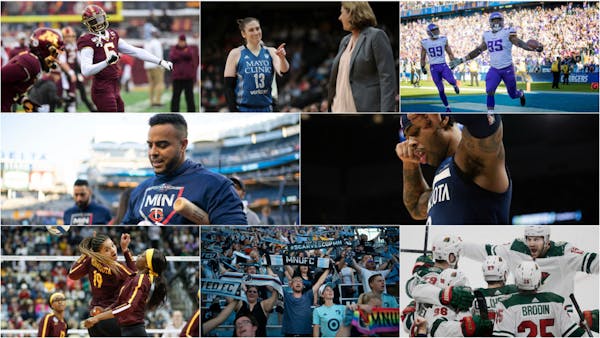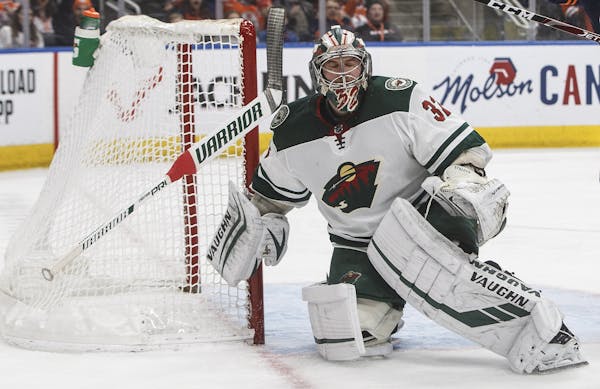Increased participation in hockey.
Minorities or people of color making up at least half the team, or maybe even a majority.
And children only hearing of stories of racism in the sport rather than experiencing it firsthand.
That's what Wild defenseman Matt Dumba would like to be reality in 10 years.
"They can look back and see us and all the people who get involved with what we're trying to do and see us as kind of pioneers for the sport and people who got rid of something that was so negative in our game," he said.
But Dumba isn't just hoping for change. He's working to instigate it.
After being among the many NHL players to speak out against racial injustice following George Floyd's killing in Minneapolis police custody, Dumba continued to show his support by helping establish the Hockey Diversity Alliance (HDA) to demolish racism and intolerance in hockey.
"This has been an eye-opener for me as well, and an opportunity where I see that I can make a difference," Dumba said Tuesday. "I do have a voice in that community, and I want to be a leader. So I want to show those people that I'm willing to commit to that and commit to making a difference.
"So this is just the start for me. Putting myself out there and being a part of this alliance is a huge step."
Launched Monday by several pros, HDA plans to promote diversity at all levels of the sport while educating the hockey community on racism issues and advocating for acceptance and equality. While independent of the NHL, the group hopes to work with the league to accomplish its goals and already has received insight from Colin Kaepernick — a conversation Dumba said made everyone star-struck.
The initial idea came after the players discussed the need for an initiative like this in the NHL and wanting to eradicate the experiences each has had with racism in the game.
"Hearing those stories is all I really needed to be on the board and know that we were doing the right thing," Dumba said.
Growing up in Calgary, Dumba recalled many times as a child that he and his family left the rink in tears. He said his mother is scared now, just as she was scared for Dumba to leave home for junior hockey.
"You're sitting in the car talking about what happened and seeing all the pain it caused," said Dumba, who described himself as probably the only kid or one of two "with any color" on his youth teams. "Just having the conversation of, 'Hey. You have to have to have tougher skin. You have to be able to take the high road on this. They are only saying that because you're playing so well.' When I think back about that, that's a conversation that white parents don't have to have with their kids nor should parents of color. That's what I want to eliminate."
Dumba remembers bottling up his experiences and using that as fuel to work harder and play better.
"Can you imagine that love for the game if you never had to fight with being discriminated against or feeling like you don't belong?" he continued. "That's what I want to promote for the youth because I think there's a generation of hockey players that can exceed all of our expectations and really change the game."
Engagement with youth and making hockey more accessible and affordable are also aims of HDA, an endeavor similar to the one Dumba is already involved in as an ambassador for Athletes Committed to Educating Students.
Some of the children from ACES live in the communities affected in the aftermath of Floyd's death, Dumba said, and it's been difficult for him to watch what's happened to Minneapolis from Calgary. But he's also proud of how the community has rallied together to take care of itself, and he and Iowa Wild forward J.T. Brown are working on a fundraiser.
"Just seeing the outreach I've had the past couple of days from teammates and other guys that have reached out has been so cool," said Dumba, who is skating in Calgary and said his return to the Twin Cities will depend on the NHL progressing to a potential training camp ahead of resuming the season. "We have already started a change."
Making an impact in the NHL first and then working on other leagues will make the most significant difference, Dumba believes. He said, "You'd be naive to say there's not racism in our game," but players are trying to listen and learn and can gain an understanding by having talks with their black or minority teammates.
Change is possible in Dumba's mind, but it's going to take everyone to make it happen.
"Younger players seeing not only their favorite black or minority players standing up but also their favorite white players also committing to this is going to go such a long way in bridging that gap and bringing everyone together," Dumba said.

